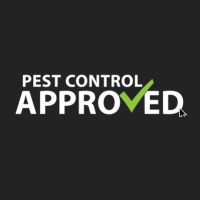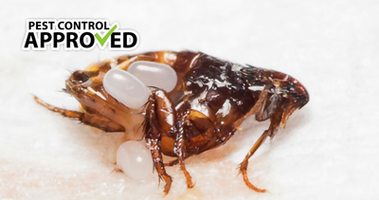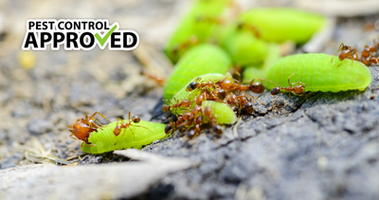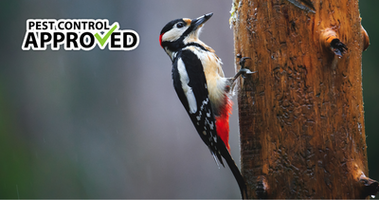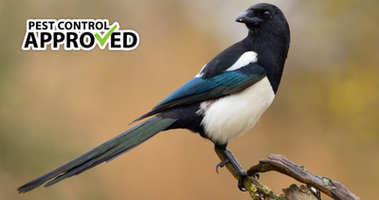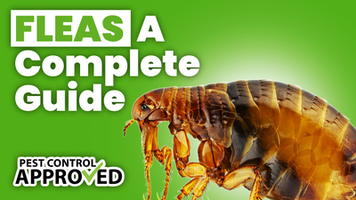
What are Mosquitoes?
Mosquitoes belong to the group Diptera. They have a single pair of wings, a head with an elongated proboscis (mouth), and long thin legs. The wings and bodies are often covered in tiny scales. The adults range in size from three to nine millimetres. The female feeds on blood to aid in egg production. Males and a few female mosquito species do not feed on blood. They have a diet of plant nectar and other sugars. A mosquito finds its host via heat, scent, and exhaled carbon dioxide.
A female mosquito will only need to mate one time, enabling her to produce eggs as many as five times during the summer. Most will lay their eggs anywhere there is sufficient moisture for their eggs. This is why it is important to remove standing water. Depending on their species, sex, weather conditions, and other factors, a mosquito can live from a week to several months. In North America, there are approximately two hundred different species.
Mosquitoes generally become active when temperatures reach 10⁰C (50⁰F).
Are They Useful?
It would be nice to live in a mosquito free world, but it would be disastrous for the environment. Adult mosquitoes are food for birds, bats, and other insects. The mosquito larva support the aquatic ecosystem and feed frogs and fish. Mosquitoes cannot be totally eradicated because they are able to adapt to changes in the environment. They will always be around and be food for bats, spiders, and other creatures.
Are They a Threat?
While their bit isn’t inherently dangerous, these insects are known as the most dangerous insect in the world. Their itchy bite can transmit several dangerous diseases both to humans and dogs. They can transmit heart-worms to dogs and malaria to humans. When a mosquito feeds on the blood of different hosts, generally human, they ingest pathogens. These pathogens can be passed on to their next host. This means that their bite can transmit various diseases such as encephalitis or West Nile Virus. Every year, one million people die from mosquito borne diseases, mainly malaria.
A mosquito can also transfer viruses from animals to humans. This can lead to encephalitis (brain inflammation). A mosquito can also transfer disease to your pets or livestock.
Mosquito Borne Diseases
According to a statement from the CDC in 2018, the cases of mosquitoes spread diseases have been on the rise since 2004. One major disease they transmit is the Zika Virus. They can also transmit The West Nile Virus, Dengue, Malaria, Chikungunya Virus, Yellow Fever, La Crosse Encephalitis Virus (LACV), and St. Louis encephalitis Virus (SLEV). In Canada, the risk of mosquito borne viruses is low, but West Nile virus is present.
Why Do They Bite?
Female mosquitoes extract protein from blood to produce eggs. When they feed, they inject saliva into your skin that can cause the bite marks and possible allergic reactions. Most bites are harmless and will disappear in a few days.
How to Prevent Mosquito Bites
- Try to stay inside at dusk, dawn, and early evening.
- When you go outside, wear a long sleeve shirt and long pants.
- Use a repellent that contains picaridin or DEET on all exposed skin.
- Get rid of any standing water.
- Make sure that the screens on your doors and windows have no holes or gaps.
Treating Mosquito Bites
Many times, it will be the day after you have gotten bitten when you notice it. Some of the signs of a mosquito bite can include:
- Small blisters instead of a hard bump
- A reddish, puffy, white bump that shows up right after the bite
- A hard, itchy brownish-red bump that appear a day or so after getting bitten
- Dark spots that could be mistaken for a bruise.
If you are bitten by a mosquito, you should wash the area with soap and water, and then apply a cold compress to help reduce the swelling. You can also use anti-itching compounds and mild antihistamines. You can also make a paste with water and baking soda or use calamine lotion. Make sure that you do not scratch the bite as it will break the skin and might cause an infection. Various home remedies that can reduce the itch include:
- Oatmeal paste—This consists of equal parts of water and oatmeal made into a paste. Put the paste on the bite and leave there for ten minutes before washing it off. If you have a lot of bites, you can do an oatmeal bath. Put a cup of oatmeal in a tub of warm water and soak for twenty minutes. You can rub some of the oats on the irritated parts of your body.
- Aloe Vera—The gel has anti-inflammatory properties and can help heal the mosquito bite. If you have an aloe Vera plant, cut off a small leaf. Aloe vera gel can also be bought over the counter. Just apply the gel to the itchy area and let it dry. Reapply as often as you need.
Some people have a severe reaction to a mosquito bite, especially children or those with an immune system disorder. You may see:
- Low-grade fever
- Hives
- A large area of redness and swelling
- Lymph nodes that are swollen
If they start to have trouble breathing, take them to the emergency room. Most adults do not have a serious reaction to mosquito bites.
How to Control Mosquitoes
Mosquitoes require water to breed. The adult females will lay their eggs in slow-moving or stagnant water, leaf litter, or moist soil. If you eliminate the water source, you can keep them from breeding.
- Drill holes in the bottom of your recycling or garbage containers, if stored outside. Do not put holes in the side as this can still allow the water to accumulate in the bottom making it a perfect breeding ground.
- Keep your gutters cleaned and unclogged. The leaves and debris in the gutters hold water and make perfect breeding grounds for mosquitoes.
- Keep your pools chlorinated and clean, even if you are not using them.
- Do not allow rainwater to accumulate in your yard.
- Mow your lawn. Mosquitoes live in long grasses or tall weeds.
- Don’t over water your lawn. Over watering can create puddles. An established lawn only needs about an inch of water a week.
- If you have an ornamental pond, acquire mosquito eating fish like the mosquito fish. A big female mosquito fish can eat as many as five hundred larvae per day.
Make sure that you also check children’s toys for accumulated water. Also check old tires, tarps, and other surfaces where water puddles after a rain. If you are using a tire swing, put a hole in the bottom to let any water drain out.
Air Curtains
These are specialized powerful fans that keep the mosquitoes away by creating a barrier. They blow a stream of strong air through a directed nozzle. This forms an invisible barrier that mosquitoes avoid. These types of fans are a long-term solution for entertaining and outdoor living areas. There are air door systems that can be mounted about entrances. They keep out the mosquitoes without bothering the people around them. The fans are easy to install, maintain, and operate quietly.
Misting Systems
There is a variety of misting systems that the homeowner can use. There are thankless and drum-based systems that use insecticides to kill mosquitoes. The thankless model mixes the insecticide formula when the system is activated. The drum-based system has an agitation cycle, which keeps the insecticide mixed. Both of these systems spray a fine mist of insecticide to kill the mosquitoes. Some are operated with a remote control while others use a switch. Most of these systems have a spray nozzle that can be mounted on fences around the yard.
These systems often use permethrin or pyrethrin. Pyrethrin is made from certain varieties of chrysanthemums and is non-toxic. Permethrin is made from pyrethrin botanicals, which is a low-toxicity, synthetic insecticide. There are some models that come with some extra features such as:
- Wind sensors
- Agitation cycle, which supplies a constant insecticide concentration
- Leak detection with an automatic shut-off
There are also several disadvantages to these systems.
- Insecticide resistance in mosquitoes
- Due to insufficient monitoring, there could be needless pesticide usage
- A threat to the population of beneficial insects
- If the instructions are not followed properly, there is a danger of insecticide exposure
To help reduce the disadvantages make sure that you understand the safety precautions.
Mosquito Nets
These act as a barrier to help keep your deck or outdoor patio mosquito-free. Many people feel they are unattractive, but they now come in stylish options.
Mosquito Traps
These traps use a sticky grid or sticky surfaces that electrocutes the mosquitoes. Most of these units do require maintenance. Often, they use an attractant, carbon dioxide, and propane. This trap stimulates human exhalation. For a smaller area, there are traps that are powered with electrical cords. These are less expensive.
Another type of trap uses either a vacuum or propeller to suck mosquitoes in. They are held by a net or trapped on sticky paper until they dehydrate. These traps can be effective in killing the mosquitoes, but often times, they attract more mosquitoes into the area, so they do little to reduce the overall population. These traps can also take up to thirty days to disrupt the mosquito’s breeding cycle. To get the most out of these traps, you will need to regularly change them. You will also need to replace the capture nets or propane tanks regularly. Even when the mosquitoes are not as prevalent in mild weather, you still need to change the nets as directed.
The effectiveness of the trap depends on a variety of things such as:
- Size of the mosquito population
- The tolerance level of individual mosquitoes
- Their breeding habits that lead to re-infestation
- Wind direction and velocity
- Placement of the traps
- The species of the mosquitoes in your area.
Mosquito Zappers
This type of device electrocutes any insects that approach it. Mosquito zappers attract mosquitoes to a light and then kill them with an electrical current. They may also kill other bothersome insects.The sounds they produce are unpleasant and they do require cleaning frequently. Keep these away from pets, foliage, and children because they utilize an electric charge. This product only targets adult mosquitoes and does little to reduce the larval population.
Mosquito Candles
The oil that is used in these candles is called citronella oil. It is also used in mosquito coils and torches. They all produce a cloud of smoke that repels mosquitoes. These can be an effective repellent when used outdoors such as around a campfire or outdoor barbecue but do not work on windy days.
Mosquito Foggers
This is also known as ‘bombing’ and is similar to roach bombing. When a fogger is activated, insecticides shoot out in a mist. It is suspended in the air for several minutes before it settles on the floor or other surfaces. While it is in the air, the fog will kill any mosquito that is flying around the room.
It does not matter if you are dealing with a small or large population of mosquitoes, you can use foggers to get rid of them in a short time. They can work both for outdoor and indoor treatments.
There are two types of foggers that are used:
- Cold ULV foggers—this type uses electricity instead of heat and are used around the world. They can be used outdoors or indoors to eliminate mosquitoes.
- Thermal foggers—this type turns the liquid insecticide into smoke, fog, or mist by using a heating coil. To achieve this, they use diesel, paraffin oil, or other carbon carriers. They operate at a high temperature, so they involve an open flame. They are not recommended to be used indoors.
The cold ULV fogger is the safest option for homeowner use. Results can be seen in as little as two minutes. While it is not possible to eliminate all the mosquitoes, the foggers will help to greatly reduce their numbers. Some foggers can be used both outdoors and indoors while others are more effective in an enclosed area.
Chemicals used:
- Residual — This type will take a long time to fade away and will settle on windows, floors, and other surfaces. It creates barrier that will eliminate mosquitoes and every other insect that comes in contact with it. Because it will kill every insect, it is best used indoors.
- Non-residual — This one works like the residual type. It just takes less time for the residue to fade away. This type is mainly used outdoors. They can wipe out the population of mosquitoes without harming other insects that are beneficial to the area. You can also use this type where the mosquitoes breed and feed.
To make sure that you eliminate the mosquitoes by fogging, you will have to identify their breeding areas. Use the fogger early in the morning or at night when mosquitoes are most active.
Before you use the fogger indoors, make sure that you completely removed all food and pets from of the house,. Once you activate the fogger, you will generally have to be out of the house for several hours. Allow some time to get fresh air into the area before you return. This is one of the best ways to eliminate mosquitoes in a home.
Repellents
These are available in creams, lotions, sticks, and aerosols. Most will last for a few hours before you need to reapply them. They can be effective at keeping mosquitoes away temporarily. Because repellents rely on contact, mosquitoes may bite before they are repelled. Some mosquitoes will ignore repellents. The best and most effective way to repel mosquitoes is to use a repellent in conjunction with a mosquito control program.
Warnings:
- Only use in moderation.
- Do not use on pets.
- Do not use near or on open wounds or irritated skin.
- If you are pregnant, consult a doctor before using a repellent.
- Be conservative when using repellent on small children
When buying repellent, look at the ingredients. The best mosquito best repellents contain DEET. It is one of the oldest ingredients. It was developed in 1946 for the U.S. Army and in 1957 it became available for the public. It is one of the two ingredients that the Center for Disease Control (CDC) recommends for preventing mosquito bites. The other ingredient is picaridin. These two-ingredient are the most effective mosquito repellents.
Home Remedies
First, look over your yard, both back, and front, to identify any potential breeding grounds. Empty any and all containers of standing water. Fill ornamental pools with fish that eat mosquitoes and rid your yard of tall grass and weeds. Once this is done, you can start to naturally repel mosquitoes.
You can plant mosquito repelling plants such as
- Citronella — Also referred to as the mosquito plant. It emits a lemon scent and can easily grow in a pot or garden. It is a perennial clumping grass that can grow up to six feet and thrives in a sunny location. If you live in a cold climate, grow them in pots and take them inside during the winter.
- Lemongrass — This is an herb plant that can grow up to six feet. It is a dark green, clumping plant that smells of lemon. It also contains citronella oil.
- Rosemary — You can grow this inside or outside. It is a repellent for mosquitoes and other flying insects.
When you plan your landscape, make sure that your yard and all planters have the proper drainage. If you have a birdbath, make sure that you change the water at least once a week.
Other methods of repelling mosquitoes can include:
- Pinion wood - When camping or using a fire pit, used this type of wood to help repel mosquitoes.They do not like the pungent smoky pine scent it emits when burned.
- Fans - Fans make it difficult for a mosquito to fly and throw off their infrared senses. The best type to purchase is an oscillating fan. Since mosquitoes are attracted to carbon dioxide that we breathe out, the fans will help to dissipate some of the carbon dioxide.
- Garden Feeder Mix - In a garden feeder, mix 1/3 of each of the following: stale beer, mouthwash with alcohol, and Epsom salt. After mixing, spray your patio, lawn, bushes, or any potential mosquito breeding ground. You should do this at the beginning and middle of the year. It smells unpleasant but the smell quickly dissipates.
- Lemon dish detergent - Put a few drops on paper plates near where you sit. Mosquitoes will be more interested in the lemons than in you.
- Used coffee grounds - Sprinkle used coffee grounds in areas of standing water where mosquitoes might breed. The coffee grounds will force any eggs in there to come to the surface where they are deprived of oxygen. The mosquitoes are killed before they hatch. When using coffee grounds, try to age them at least twenty-five days.
- Dry Ice - This emits a lot of carbon dioxide, which mosquitoes are attracted to. Just place dry ice in containers near where you are going to be.
- Insect-repelling Lights - These lights include yellow bug lights, sodium lamps, and LED lights. All of these types of lights not only give your yard light but also deters the mosquitoes from flying too close.
- Natural Predators - Install birdhouses, feeders, and bat houses in your yard. Bats and many birds love to eat mosquitoes and will help to keep the mosquito population under control. A single brown bat can eat up to a thousand mosquitoes every hour.
Homemade Mosquito Repellent
Lemon Eucalyptus Oil
Mix ten parts witch hazel or sunflower oil with one-part lemon eucalyptus oil. You can rub it on your skin or put it in a spray bottle. It is recommended that you do not use this on children under the age of six.
Lavender
You can grow this in an indoor planter or in your garden. Crush the flowers and apply the oil to the areas of your body that are bite-sensitive, like your ankles and arms. You can also use some lavender essential oil on a cloth and rub it onto your skin.
Cinnamon Oil
Mix one-fourth teaspoon of cinnamon oil for every four ounces of water. Put this in a spray bottle and you can spray it on your clothes, your skin, or around the house. Make sure it is not too concentrated as it can irritate your skin.
Thyme Oil or Leaves
Throw thyme leaves in your campfire and they will give you at least 85% protection for at least an hour. If you want to make a spray you can add five drops of oil with two ounces of water.
Lavender
Lavender can be used as a plant or an essential oil. Like DEET, it repels mosquitoes via scent.
Apple Cider Vinegar
Mix with water or put directly into a spray bottle. Can be applied to skin and clothing.
Repel Mosquitoes When Camping
When picking a camping spot, find a place that is dry. Mosquitoes love wet and dirty environments. Make sure that there is no standing water near your camping site. Avoid leaving open food around and wash your cookware and dishes immediately after eating. Try to avoid a camping site near a trash can. If there is no waste can, use a plastic bag that you can tie up to keep mosquitoes from getting inside. You can also light jars of citronella or citronella torches. You can also use a candle that has a combination of essential oils like tea tree, lavender, lemon, clove leaf, and peppermint. When looking for a candle, look for labels that say citronella or mosquito repellent.
When not in your tent, make sure that you keep it zipped shut and the screens for rips or holes. When building your campfire, put a stick or two of sage in the fire to keep mosquitoes away. Mosquitoes are attracted to scents, so use unscented products. If necessary, you can purchase sleeping bags with built-in mosquito netting.
Commercial Insecticides
Insecticides have one or more chemicals that are the active ingredients. This is what gives the insecticide it killing or repelling power. Check the label to see what the active ingredient(s) are. Some of the common chemicals used include:
- Abamectin
- Fipronil
- Hydramethylon
- Boric acid
- Deltamethrin
- IGR (insect growth regulator)
Some of the pesticides that are used specifically for mosquito control are:
- Synergist—Increases effectivity of adulticide.
- Larvicides—Applied directly to water to control eggs and larva.
- Adulticides—Used in sprays and foggers to help control adult mosquitoes.
In Conclusion
To control the mosquito population requires a combination of control methods. First, you should eliminate their breeding grounds. You should also use larval control methods for ponds. Keep the weeds down around your home and eliminate standing water. Try non-toxic method of controlling the population by using traps. If you cannot control them using home or commercial remedies, then you may need to call a professional. Many times, a professional will spray your yard once a week from May to September when the mosquitoes are most active. Make sure to look into mosquito control long before summer beings. Mosquito season starts when the outside temperature hits 10⁰C (50⁰F).
Mosquito control needs to be effective so the time you and your family spend outside is enjoyable. It will also give you peace of mind knowing that you will not be covered in mosquito bites.

